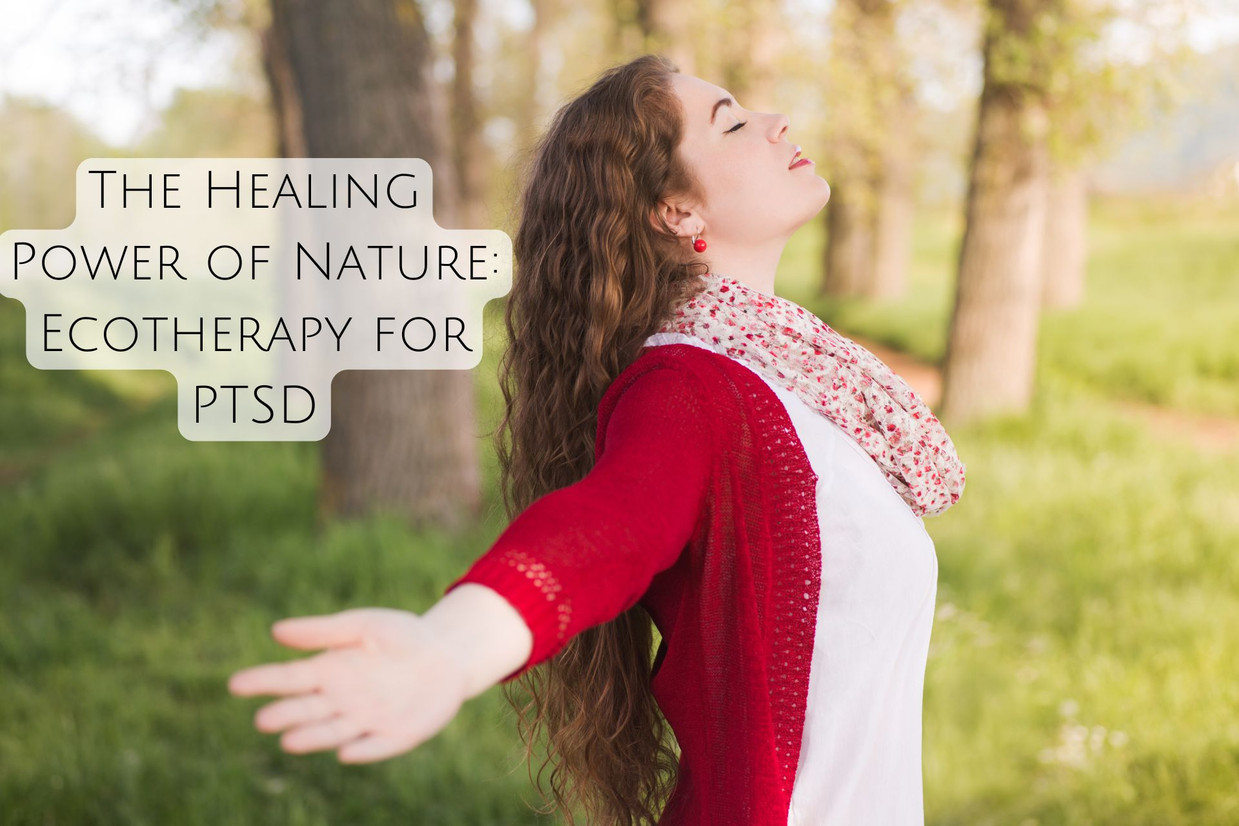The Healing Power of Nature: Ecotherapy for PTSD
Post-traumatic stress disorder (PTSD) is a mental health condition that can result from experiencing or witnessing life-threatening events. Traditional treatments for PTSD often include therapy and medications, but an emerging and increasingly recognized treatment is ecotherapy—the practice of using nature and natural environments to promote emotional healing.
Ecotherapy has gained attention for its potential to help individuals with PTSD find relief and healing by connecting with nature in a meaningful way. In this article, we’ll explore how ecotherapy works, its benefits for PTSD sufferers, and practical ways to incorporate nature into the healing process.
What is Ecotherapy?

Ecotherapy, also known as nature therapy or green therapy, is a therapeutic approach that emphasizes the healing potential of the natural environment. It encourages individuals to engage with nature in a therapeutic context, whether through guided nature walks, gardening, wilderness therapy, or simply spending time outdoors in a mindful way.
The core principle of ecotherapy is that nature has a profound, restorative effect on the mind, body, and spirit. It leverages the idea that humans have an innate connection to the natural world, known as biophilia, which suggests that our well-being is deeply intertwined with the environment around us.
How Does Ecotherapy Help with PTSD?
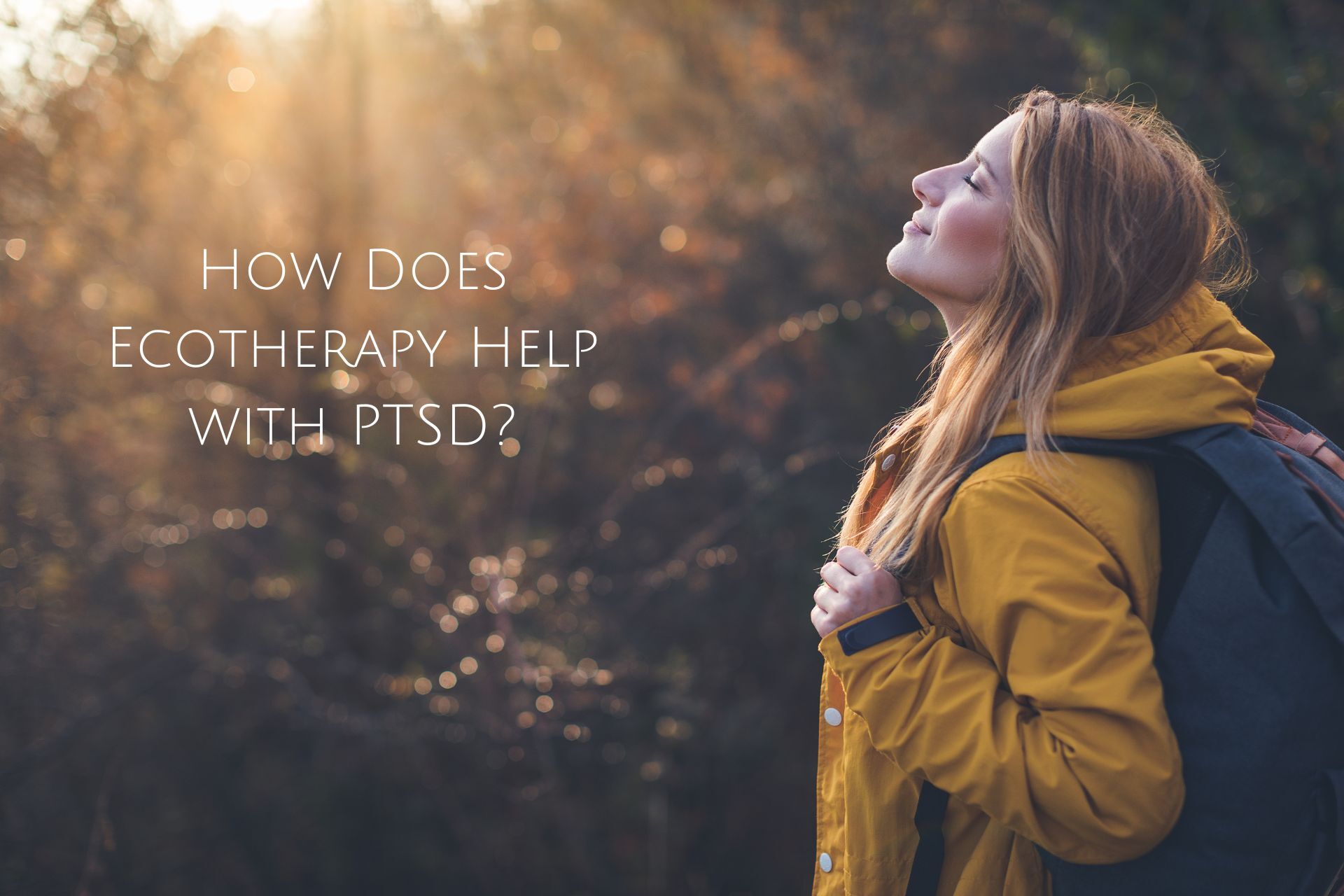
The symptoms of PTSD can often feel overwhelming, and traditional therapies like cognitive behavioral therapy (CBT) or eye movement desensitization and reprocessing (EMDR) may take time to show results. Ecotherapy can offer a complementary or alternative approach, with several mechanisms that can help individuals with PTSD:
1. Reduction of Stress and Anxiety
Studies show that spending time in nature significantly reduces cortisol levels (the stress hormone), leading to a decrease in overall stress and anxiety. Nature has a calming effect on the nervous system, which helps to lower heart rate and blood pressure, creating a sense of safety and relaxation. For PTSD sufferers, this reduction in physiological stress can be a powerful tool for managing symptoms.
2. Grounding and Mindfulness
Ecotherapy encourages mindfulness practices, such as focusing on the sights, sounds, and smells of nature. This “grounding” helps individuals shift their focus away from distressing memories or intrusive thoughts associated with trauma. Nature serves as a form of distraction, helping individuals become more present and engaged with the world around them, which can be particularly beneficial for people with PTSD who often struggle with rumination and intrusive thoughts.
3. Restoration of the Autonomic Nervous System
Nature helps to restore balance to the autonomic nervous system (ANS), which governs stress responses like the "fight or flight" reaction. Spending time in nature helps activate the parasympathetic nervous system, which promotes relaxation, healing, and emotional regulation.
4. Improved Mood and Emotional Resilience
Nature therapy promotes positive emotions like awe, joy, and peace, which are vital for mental health recovery. Being in natural spaces can trigger the release of endorphins and serotonin, hormones that improve mood and reduce feelings of depression. Regular exposure to green spaces has been linked to improved emotional resilience, which is crucial for those dealing with the ongoing challenges of PTSD.
5. Fostering Connection and Social Support
For many PTSD sufferers, isolation is a common problem. Ecotherapy can offer a sense of community by encouraging group activities in nature, such as group walks, retreats, or gardening projects. These activities allow individuals to bond with others, share experiences, and build support networks in an environment that feels safe and nurturing.
Scientific Research Supporting Ecotherapy for PTSD
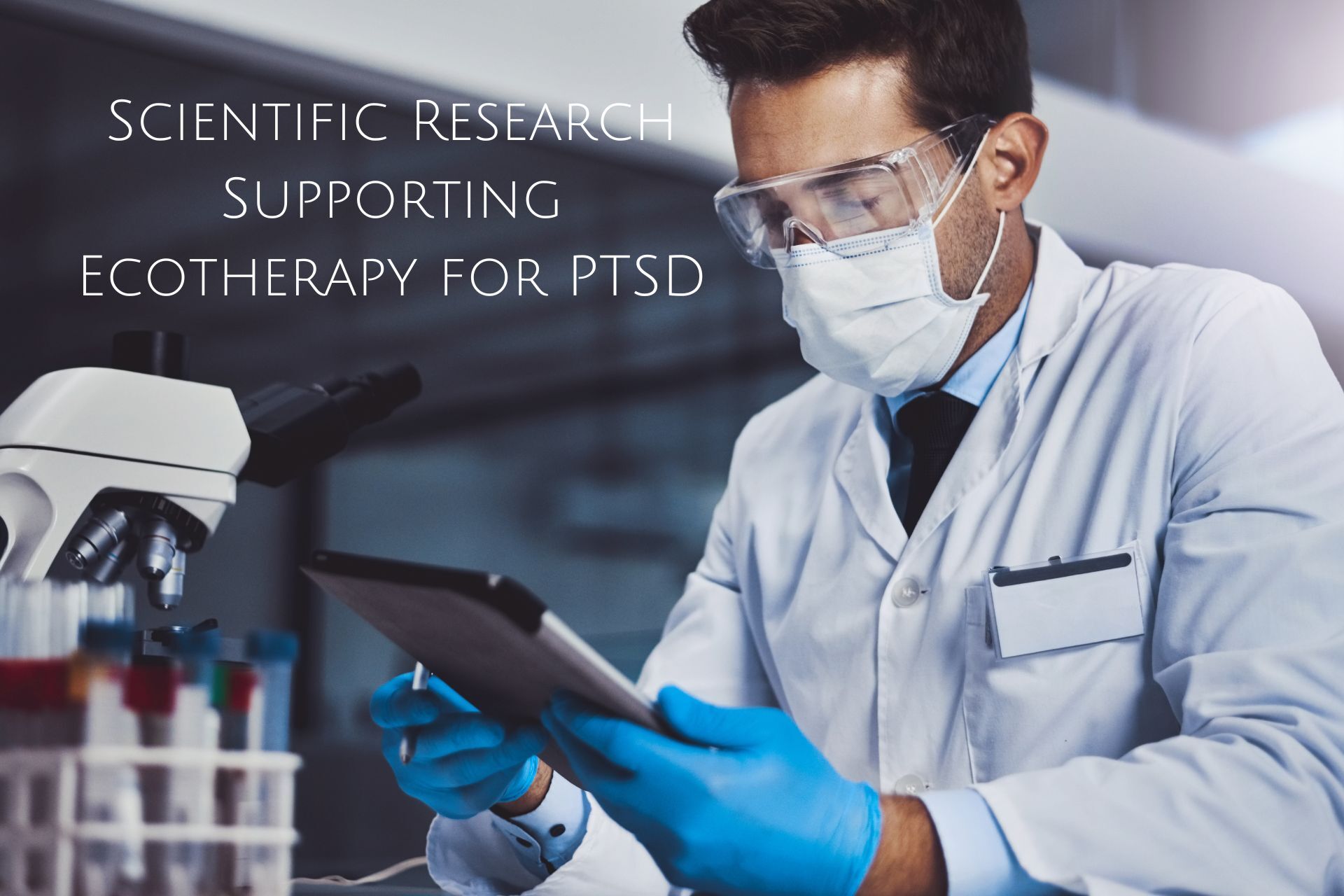
Several studies have shown that ecotherapy can be an effective treatment for PTSD. In a 2015 study conducted by the University of Essex, participants who took part in a 2-hour walk in a natural environment showed a significant reduction in symptoms of anxiety, depression, and negative thoughts. This contrast was evident when compared to participants who walked in an urban setting, where no such improvement was noted. Similarly, research published in the Journal of Traumatic Stress has shown that wilderness therapy programs have led to decreased PTSD symptoms and increased emotional well-being in veterans and individuals who have experienced significant trauma.
Types of Ecotherapy for PTSD
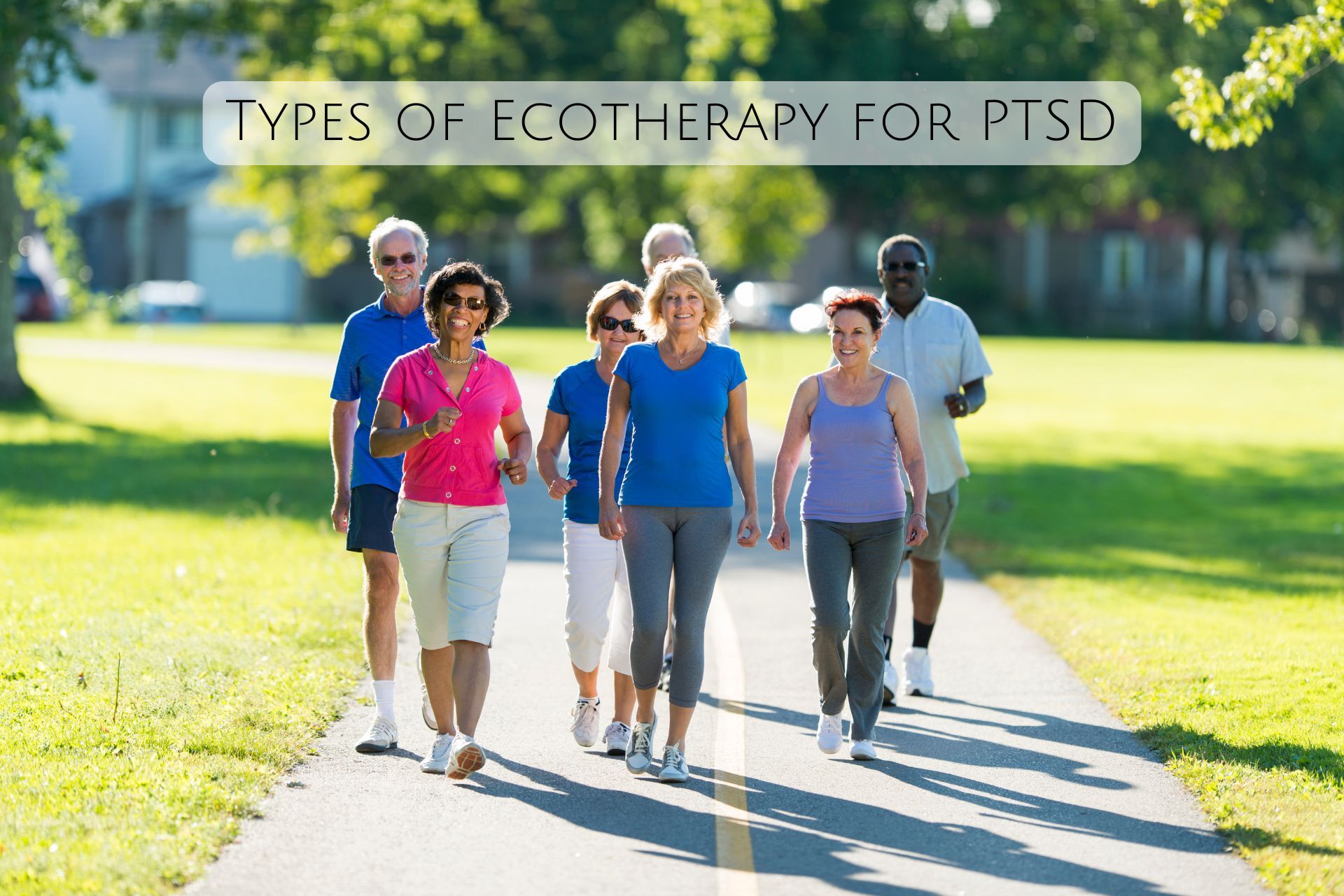
There are several approaches to ecotherapy, each designed to engage individuals with nature in different ways. Some of the most common practices include:
1. Nature Walks and Hikes
Guided walks or hikes in natural settings help participants experience nature at a calming pace while also benefiting from the soothing sounds and sights of the environment. Walking in nature can be particularly effective for grounding and reducing anxiety, making it an ideal starting point for PTSD sufferers.
2. Wilderness Therapy
Wilderness therapy programs often involve intensive, immersive experiences in nature. This could include longer stays in remote areas, camping, and engaging in activities like hiking, rafting, or survival skills. Wilderness therapy offers the opportunity for deeper emotional processing, self-discovery, and personal growth, making it an excellent option for those dealing with severe PTSD.
3. Gardening Therapy
Gardening provides a hands-on, therapeutic way to connect with nature. It encourages mindfulness, responsibility, and a sense of accomplishment. Gardening can also be used as a form of expressive therapy, helping individuals process emotions while cultivating the land. Many ecotherapy programs incorporate gardening as a low-stress way for participants to heal.
4. Animal-Assisted Therapy
Animals, especially horses, are often used in ecotherapy programs for PTSD. Horseback riding, for example, has been shown to reduce anxiety, promote emotional regulation, and help individuals develop trust and empathy. Interaction with animals in a natural environment can be a powerful tool for healing trauma.
5. Forest Bathing (Shinrin-yoku)
This Japanese practice encourages individuals to immerse themselves in the forest environment, breathing deeply and taking in the sounds, smells, and textures around them. Research has shown that forest bathing can significantly reduce cortisol levels, improve mood, and promote mental clarity. For PTSD sufferers, this practice can provide a profound sense of peace and healing.
How to Incorporate Ecotherapy into Your Life
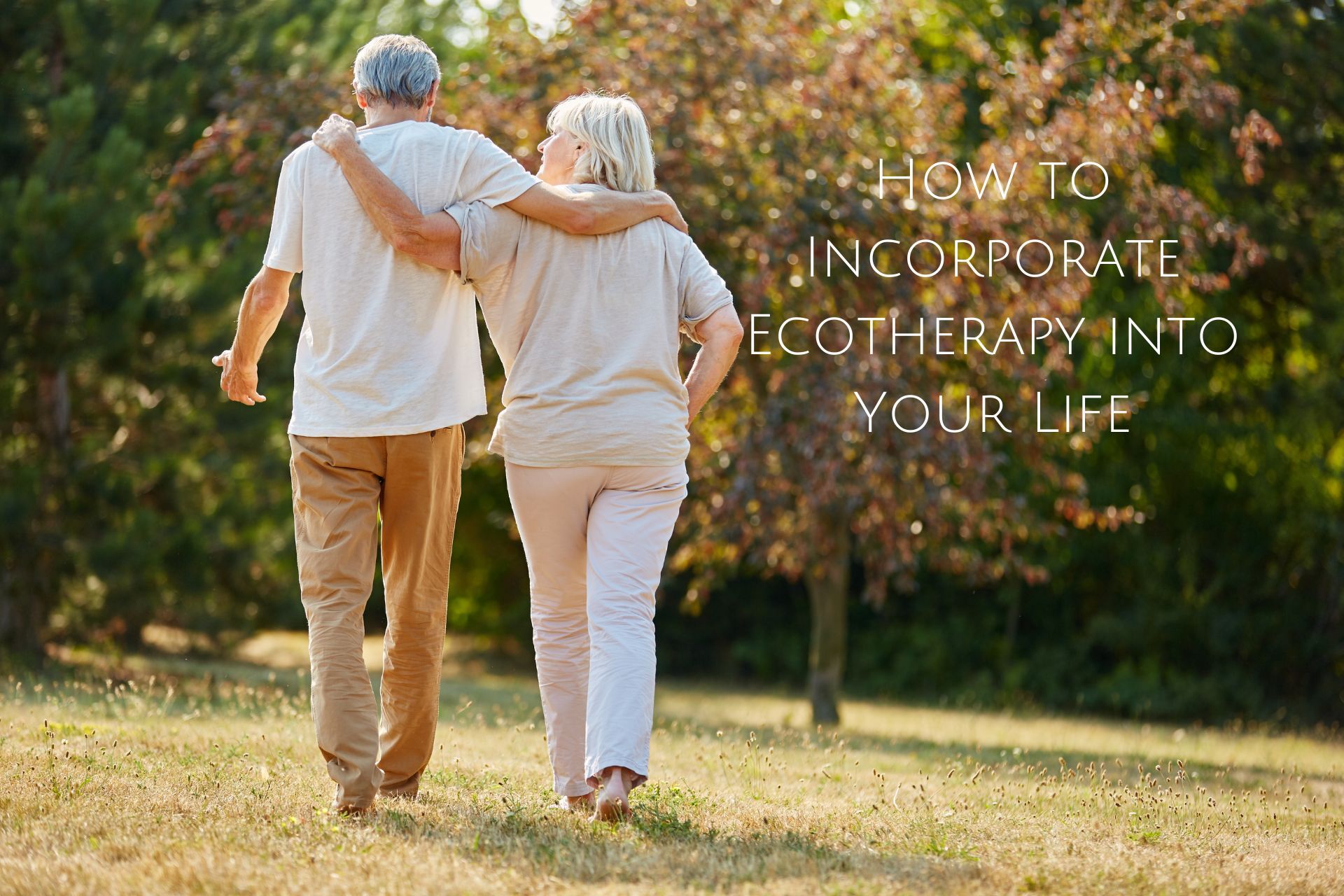
If you’re struggling with PTSD and are interested in exploring ecotherapy, here are some simple steps to start connecting with nature for healing:
-
Take Nature Walks: Start with short walks in a park, forest, or beach. Focus on the sights and sounds around you, practicing mindfulness as you walk.
-
Create a Garden: Grow flowers, herbs, or vegetables at home. Gardening can be a meditative and rewarding activity that helps ground your thoughts.
-
Join a Group Therapy Session in Nature: Look for local ecotherapy programs or retreats that incorporate nature into their therapeutic practices.
-
Try Forest Bathing: Spend time in wooded areas and immerse yourself in the natural surroundings without distractions.
-
Seek Professional Help: Consult with a licensed ecotherapist who can guide you through the healing process in nature.
Conclusion
The healing power of nature is profound, and ecotherapy has shown immense promise as an effective treatment for PTSD. Whether through reducing stress, fostering emotional resilience, or offering a sense of connection and belonging, nature has the ability to restore balance to both the mind and body. If you or someone you know is struggling with PTSD, consider exploring ecotherapy as part of a comprehensive healing plan. With nature as your ally, the path to recovery becomes a journey of healing, growth, and transformation.
Recent Posts
-
The New Generation of Indian Skincare: Bridging Ayurveda and Dermatological Science
Introduction: For millennia, Indian royalty relied on Kumkumadi Taila—the legendary saffron-infused
-
Red Nails vs Pink Nails: Which Looks More Romantic for Valentine’s Day?
Introduction: Valentine's Day approaches, and with it comes the timeless question: red nails or pink
-
The Wellness Valentine: Valentine’s Day Gift Ideas for Health & Wellness Lovers
Introduction: Valentine's Day has evolved beyond traditional red roses and chocolate boxes. In today

